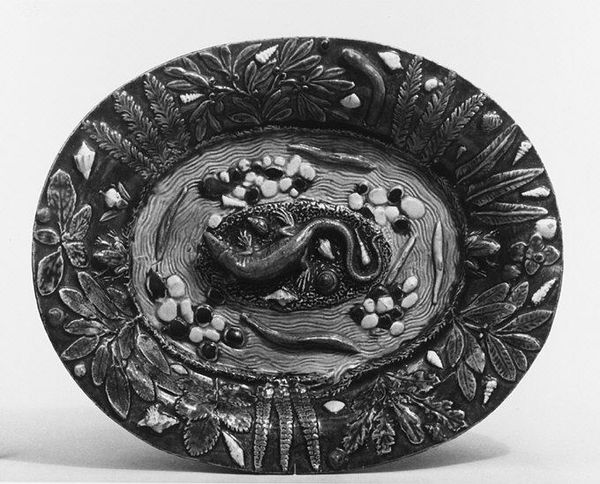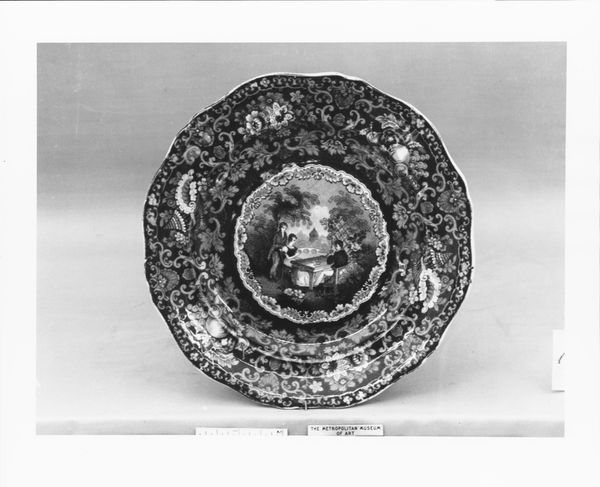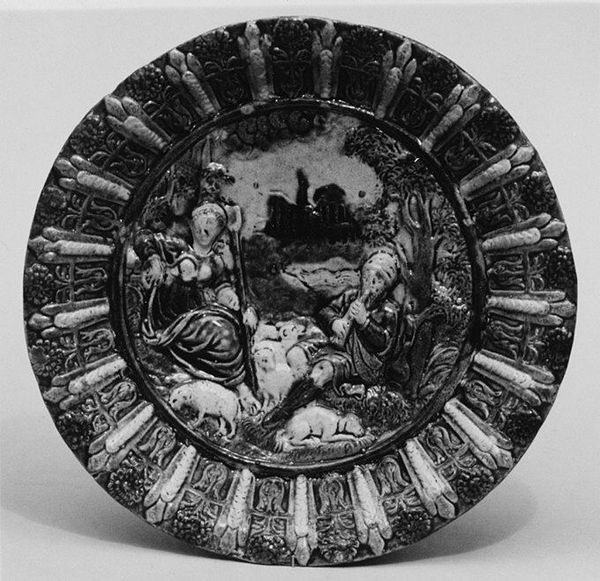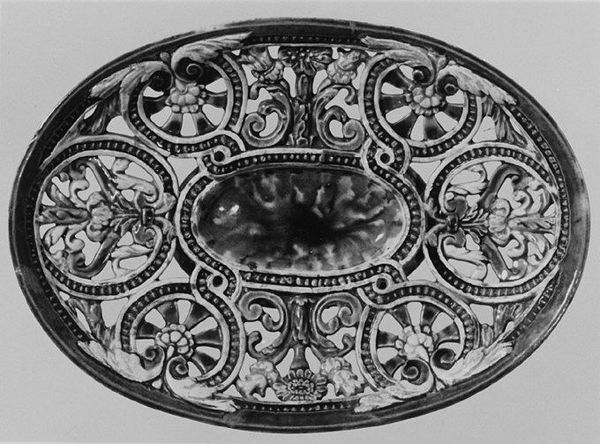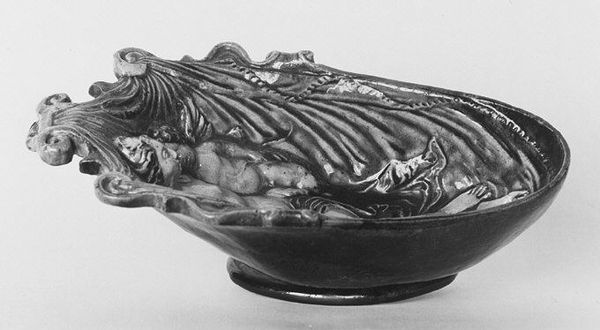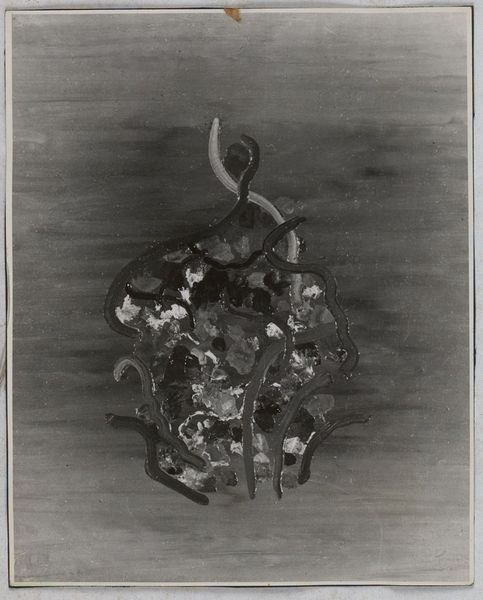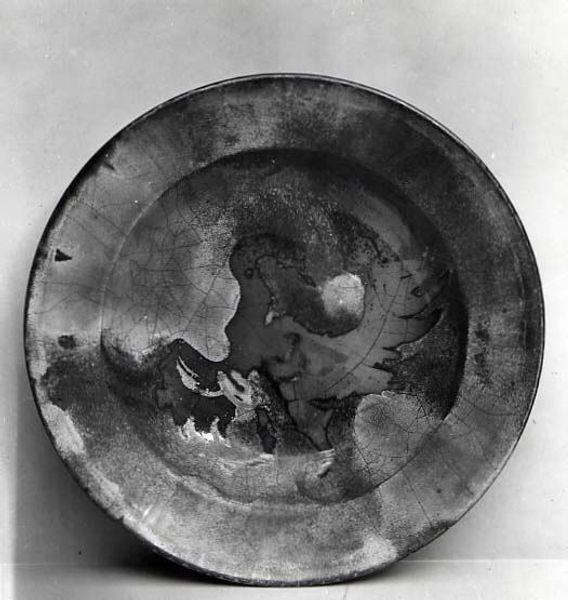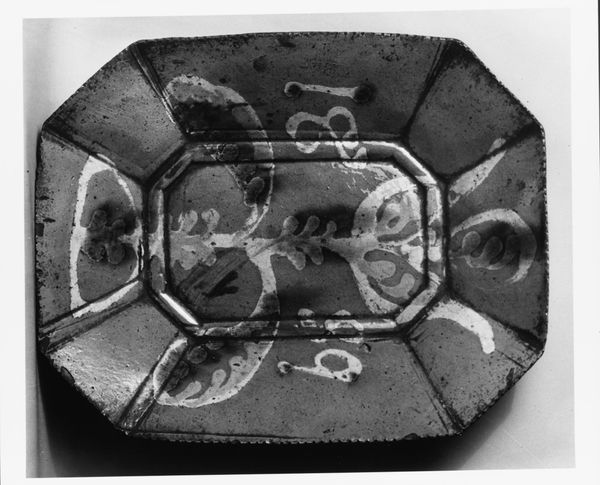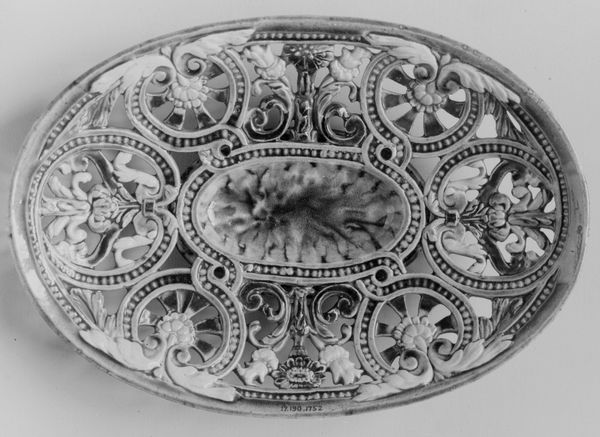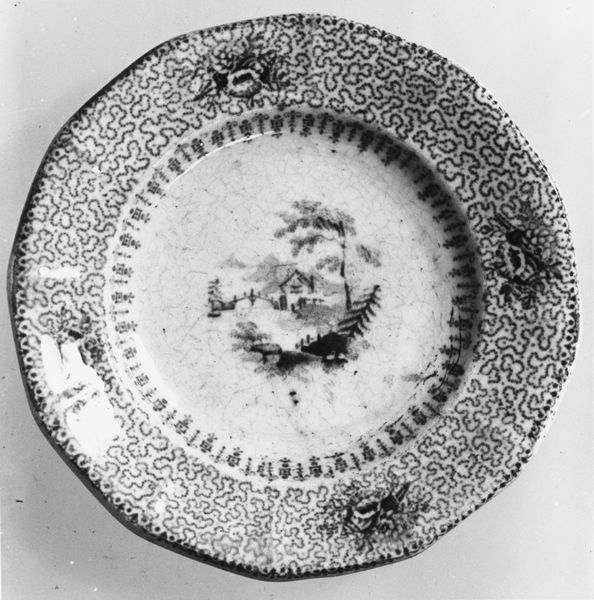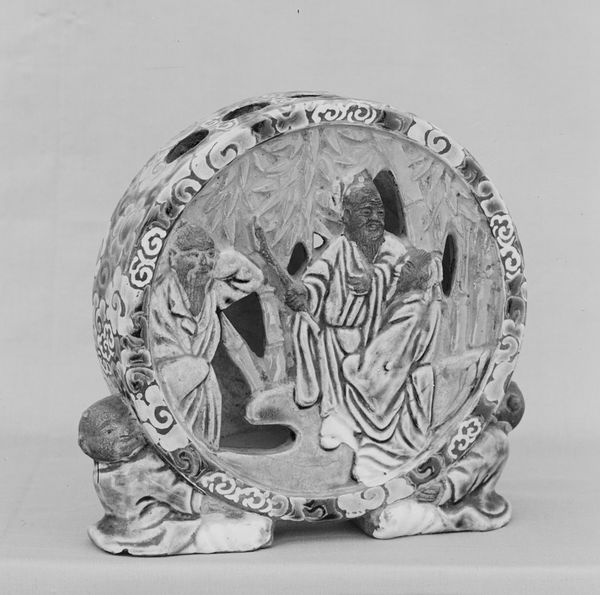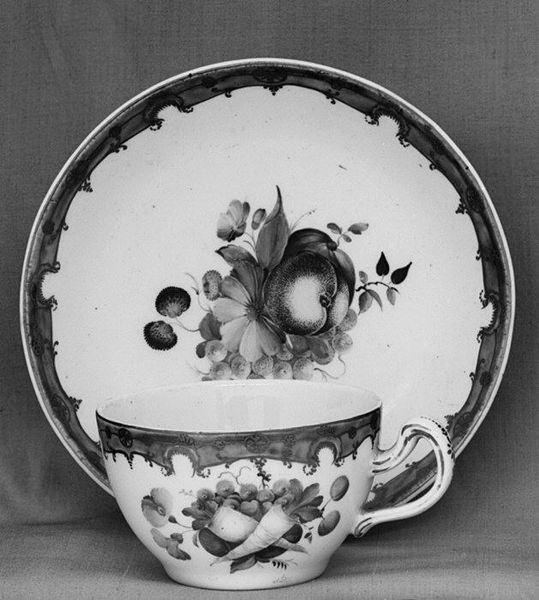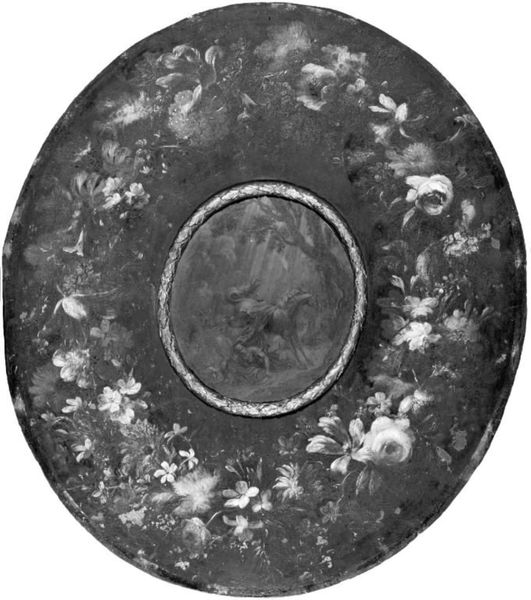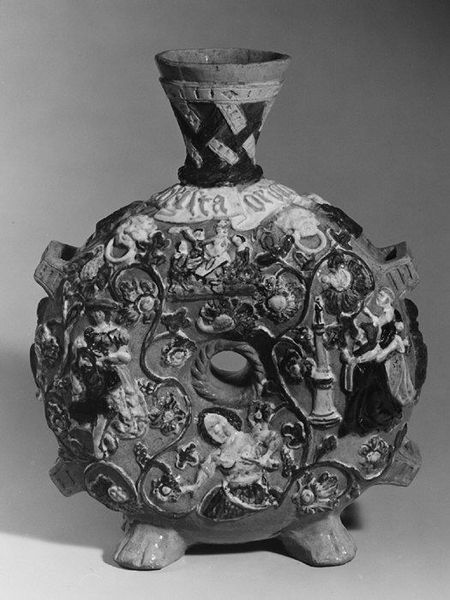
Dimensions: 2 1/2 × 12 3/4 × 9 5/8 in. (6.4 × 32.4 × 24.4 cm)
Copyright: Public Domain
This lead-glazed earthenware dish was made by Bernard Palissy sometime in the 16th century, when France was seeing an increasing interest in the natural sciences. Palissy was a Huguenot potter who famously burned his furniture to keep his kiln firing, and was eventually imprisoned for his religious beliefs. He was obsessed with accurately depicting nature; you can see this in the lifelike frogs, snakes, and insects that adorn the surface of this dish. Such naturalism was a marked departure from the stylized forms of earlier Renaissance ceramics, and reflected the growing influence of scientific observation. But Palissy was also selling to wealthy patrons who desired this type of ornamentation. To truly understand this dish, we need to consider the social and intellectual context in which it was made. Documents like scientific treatises and religious pamphlets can help us to unpack its layers of meaning. In doing so, we can see Palissy's work not just as a beautiful object, but as a window into a complex and fascinating world.
Comments
No comments
Be the first to comment and join the conversation on the ultimate creative platform.
